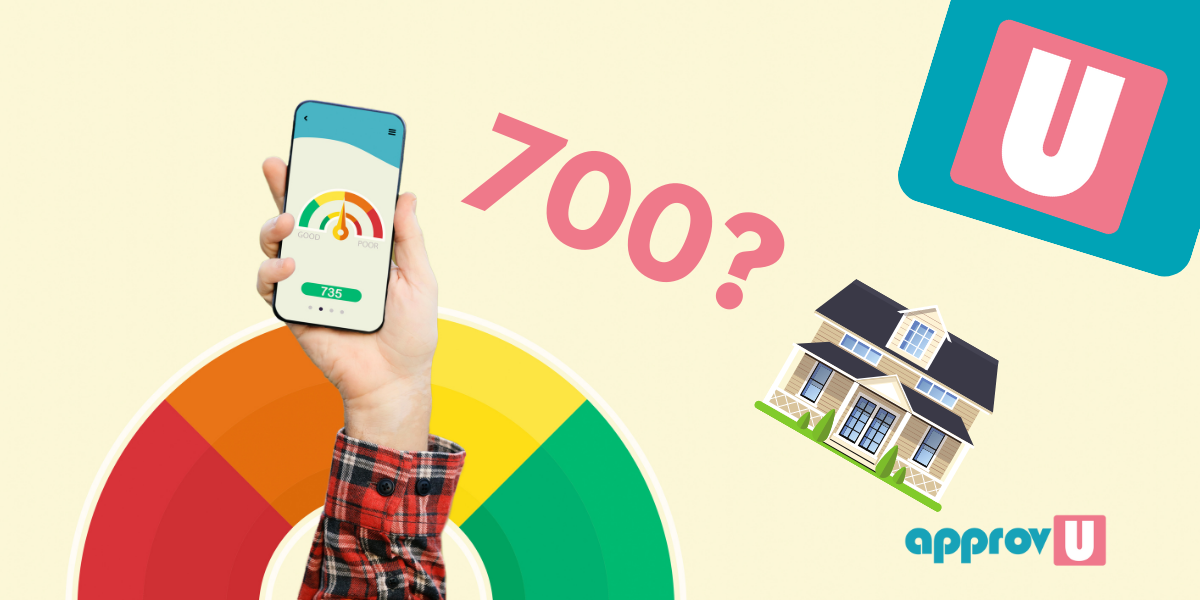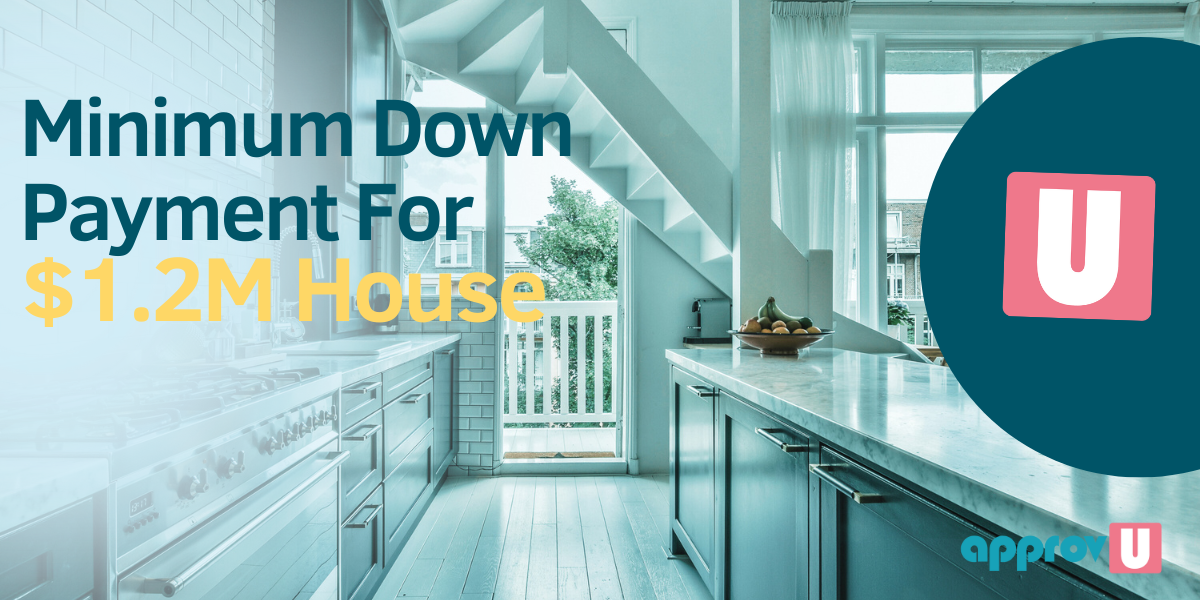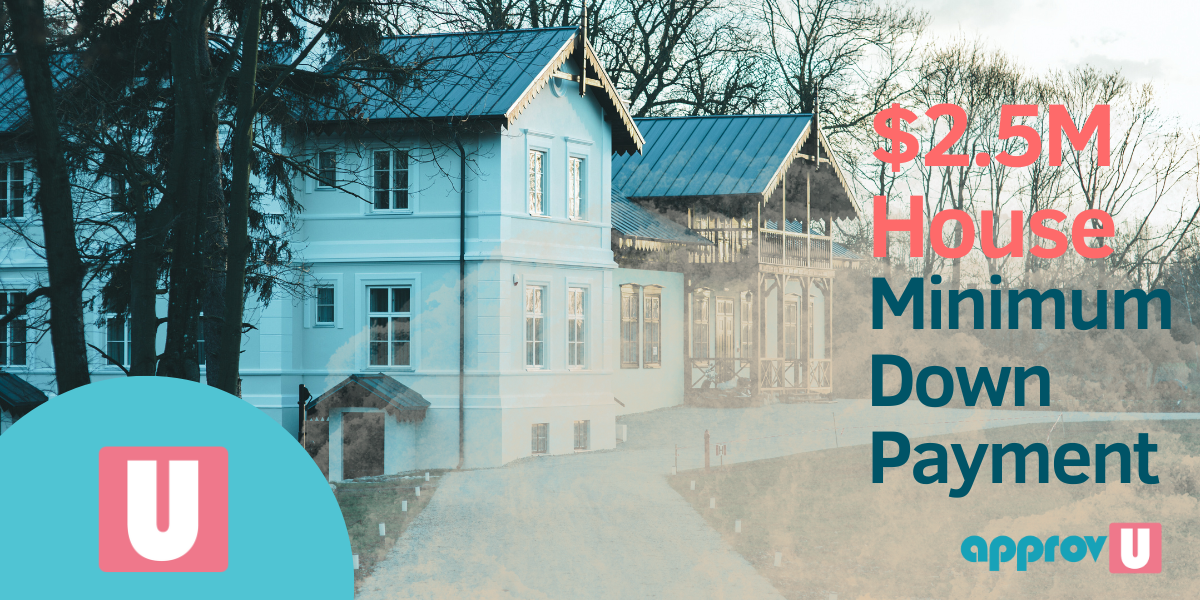If you’re like most of us, you’ve probably asked yourself: “What exactly is a credit score, and why does it matter when I’m trying to get a mortgage?”
You’ve come to the right place because we’re about to unravel this mystery together.
In simple terms, a credit score is like your financial report card. It’s a three-digit number that tells lenders how responsible you’ve been with credit in the past.
This score ranges between 300 to 900 and is determined by several factors, such as your payment history, debt level, and the length of your credit history.
The higher your score, the more financially trustworthy you appear to lenders.
When it comes to getting a mortgage, your credit score is a big deal.
Why, you may ask?
Well, lenders use your credit score to decide whether to lend you money for your home and at what interest rate. This score essentially determines how much your dream home will cost you in the long run.
In this blog post, we’re going to zoom in on a 700 credit score. Is it a good score when applying for a mortgage?
How does it impact your mortgage terms and interest rates? And if you have a 700 credit score, how can you improve it to get the best mortgage deal possible?
Stick around, and we’ll get into all that and more.
Understanding Credit Scores
Let’s take a step back for a moment and dive deeper into the world of credit scores.
Think of credit score as your financial reputation. It’s what tells lenders, “Hey, this person is pretty responsible with their money,” or “Hmm, lending to this person might be a bit risky.”
Credit scores range from 300 to 900, and these scores are usually categorized into different bands, with each band representing a level of creditworthiness.
So, what are these bands, you ask? Well, they look something like this:
- Poor (300-579): This range signifies that you’ve had some serious credit missteps in the past. It could be defaults, bankruptcy, or a series of late payments.
- Fair (580-669): This score means you’re somewhat trustworthy but have had a few missteps. You’re in the rebuilding stage and working to improve your credit history.
- Good (670-739): A score in this range shows that you’re generally dependable and usually make payments on time. You’re not a high risk, but you’re not the highest achiever either.
- Very Good (740-799): If you’re in this range, pat yourself on the back. It shows you’re reliable, and lenders love seeing this score.
- Exceptional (800-900): This is the cream of the crop. It tells lenders you’re at the top of your game regarding managing credit.
The Significance of a 700 Credit Score
So, you’ve pulled your credit report and discovered you have a 700 credit score. You might wonder, “What does this mean for me?”
A 700 credit score sits pretty comfortably in the ‘Good’ range. You’re in a better position than those in the ‘Fair’ or ‘Poor’ range but not quite at the ‘Very Good’ or ‘Exceptional’ level.
It’s like getting a solid B on your credit report card.
This score suggests to lenders that you’re usually quite responsible with your money.
You generally make payments on time, and while you might have had a couple of bumps along the way, you’ve proven that you can manage credit reasonably well.
You’re not considered a high-risk borrower, but you’re not seen as the lowest risk either.
It’s important to understand that a 700 credit score isn’t a magical number guaranteeing you’ll get every loan you apply for.
Different lenders have different criteria, and what might be a good score for one lender could be just okay for another.
However, with a 700 credit score, you should be able to get credit when you need it.
You might not always qualify for the best interest rates or the most favourable loan terms, but you’re definitely not out of the game.
Impact of a 700 Credit Score on Mortgage Loans
Ready to talk mortgages?
Let’s dive in!
So, you’re eyeing that dream home and wondering, “What can my 700 credit score get me in the mortgage world?”
Well, it’s good news! A 700 credit score can indeed open doors to homeownership.
But let’s break this down a bit further.
Regarding mortgages, your credit score is like the golden ticket. It affects your mortgage approval and the interest rates you’ll be offered.
A higher score usually translates into lower interest rates because lenders see you as a lower risk.
With a 700 score, you’ll likely get approved for a mortgage—congratulations!
However, the interest rate you’ll be offered might not be the absolute best on the market.
Those very low advertised rates are generally reserved for borrowers with ‘Very Good’ to ‘Exceptional’ credit scores.
To put this into perspective, let’s say you’re borrowing $200,000 for a 25-year mortgage. Even a 1% difference in interest rate can translate to tens of thousands of dollars over the life of the loan.
With a 700 credit score, you might be looking at an interest rate slightly higher than those with scores in the ‘Very Good’ or ‘Exceptional’ range.
Another point to consider is that while you’re not viewed as high-risk with a 700 score, there might still be a few bumps in the road to getting a mortgage.
For instance, you may face stricter underwriting than those with higher scores and be asked to provide more documentation to back up your loan application.
How to Improve a 700 Credit Score
We’ve discussed where a 700 credit score gets you, but what if you want to nudge that score slightly higher?
I hear you.
The good news is, it’s totally doable. Here are a few strategies you can start using today:
- Pay Your Bills On Time: This might sound like a no-brainer, but you’d be surprised how late payments can affect your credit score. Your payment history makes up a significant portion of your credit score, so consistently paying your bills on time can be a huge boost.
- Keep Your Credit Utilization Low: Credit utilization is how much of your available credit you use. Ideally, you should use less than 30% of your credit limit. So, if your credit card has a limit of $10,000, try to keep your balance below $3,000.
- Don’t Close Old Credit Cards: The length of your credit history is another factor influencing your credit score. If you have old credit cards, you’re not using, consider keeping them open (unless they have high annual fees). Even if you’re not using these cards, they help show a longer credit history.
- Diversify Your Credit: Lenders like to see that you can responsibly handle different types of credit. If you only have one type of credit, like a credit card, consider diversifying with a different type of credit, like a personal or auto loan.
- Limit New Credit Applications: Each time you apply for credit, it can result in a hard inquiry on your credit report, slightly lowering your credit score. So, if you want to boost your score, you should limit those new credit applications.
Remember, improving your credit score is not an overnight process. It requires consistency and patience.
But the rewards can be significant, especially when it comes to getting a mortgage.
Lower interest rates can save you a lot of money over the life of your loan, making that dream home even sweeter.
Case Studies
Nothing beats hearing about real-life experiences to bring all this information home, right?
So, let’s look at a couple of stories from people who have been in your shoes.
Success with a 700 Score
Meet Sarah. She had a 700 credit score when she started house hunting.
Sarah found a beautiful home in her price range and applied for a mortgage. Her credit score made her easily approved for the loan, but the interest rate offered to her was slightly higher than the lowest available rates she had seen advertised.
Sarah decided to go ahead with the mortgage because she didn’t want to miss out on her dream home.
Today, she’s happily settled in her new place and working on improving her credit score for future financial opportunities.
Improving from a 700 Score
Then, there’s Mike. Mike also had a 700 credit score when he started thinking about buying a home.
But unlike Sarah, Mike wasn’t in a rush. He decided to spend a few months working on improving his credit score before applying for a mortgage.
Mike was diligent about paying all his bills on time, keeping his credit utilization low, and avoiding new credit applications. After six months, his credit score had risen to 740.
With his improved score, Mike was offered a lower interest rate when he applied for his mortgage. He estimates that this will save him over $20,000 over the life of the loan compared to if he’d applied with his original score.
These stories show that you have options if you decide to go ahead with a mortgage with a 700 credit score or work to improve your score before applying.
Your credit score is essential, but there are other factors lenders consider, and it’s definitely not a barrier to homeownership.
Conclusion
Alright, you’ve made it this far, and I’m sure you’re feeling much more clued up about what a 700 credit score means for your mortgage journey.
To recap, a 700 credit score is generally considered ‘Good.’
If this is you, you’re seen as a reasonably low-risk borrower. This means you’re likely to be approved for a mortgage, but you might not get the best interest rates out there.
We’ve also explored some ways you can boost your 700 credit score, from paying your bills on time and keeping your credit utilization low to diversifying your credit types and limiting new credit applications.
Our case studies show how others navigated the mortgage process with a 700 credit score. These stories show that owning your dream home is possible with a 700 credit score, and you could get better terms with some work and patience.
Remember, a credit score isn’t a measure of your personal worth. It’s just a tool lenders use to assess risk. It’s a starting point, not the finish line.
Whether sitting at 700 or working your way up, every step you take toward improving your credit is a step toward your financial goals.
Additional Resources and Next Steps
You’ve done an amazing job getting to grips with how a 700 credit score can impact your mortgage prospects. But remember, this is just the beginning of your journey. A wealth of resources is out there to help you along the way.
Here are a few next steps you might want to consider:
- Credit Report Check: If you haven’t already done so, pull your credit report from each Equifax or TransUnion. It’s crucial to check these reports for errors that might pull your score down.
- Financial Counseling: Consider seeking advice from a certified financial counsellor. They can help you create a strategy for improving your credit score and guide you on your path to homeownership.
- Online Tools: Take advantage of online mortgage calculators. They can help you understand how different interest rates and loan terms can affect your monthly payments and the overall cost of your loan.
















